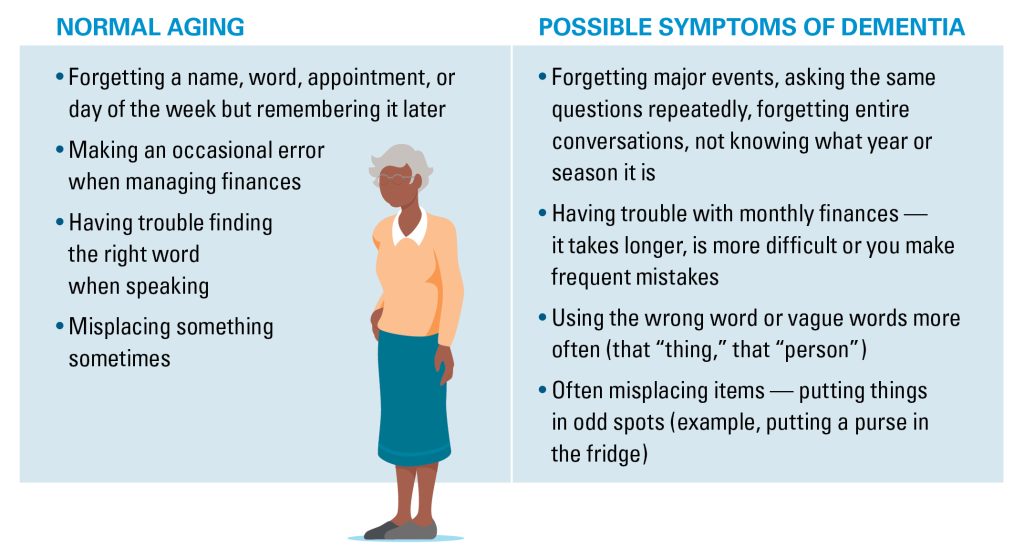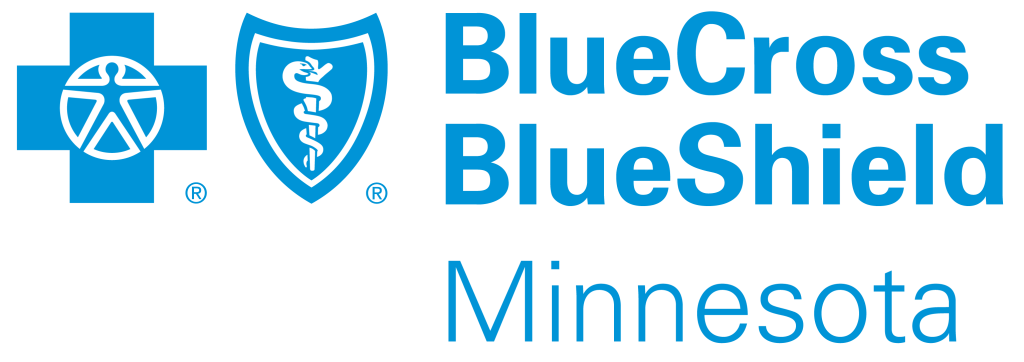Take action to manage memory loss
by Kelsey Hanson
At some point, you’ve likely experienced a temporary loss in memory, such as briefly forgetting someone’s name or misplacing something you use frequently. These are normal, expected moments as the mind ages.
But brain function is much more than just memory. Dr. Kathleen Woo-Rippe, medical director of Allina Health’s cognitive and memory program, shares that the brain is responsible for learning, problem solving, orientation and planning language in addition to memory. All of these thought processes slow down as we age.
While a brief memory lapse is not a concern, bigger issues with memory, speaking or time disorientation may be symptom
of dementia.
What is dementia?
Dementia is an umbrella term to describe changes in brain function that are not part
of the normal aging process and are not caused by other conditions. Common types of dementia include Alzheimer’s, early onset, vascular and Parkinson’s-related dementia.
“Dementia is a chronic, progressive medical condition,” Dr. Woo-Rippe says. “Just like diabetes or heart failure — it needs to be managed like other medical conditions.”
When to see your doctor
Dr. Woo-Rippe says that dementia is undiagnosed 50 percent of the time, which means less medical support and intervention. If you are experiencing any symptoms of dementia or have concerns about memory or other thought processes, it’s important to visit your primary care provider (PCP) and bring a loved one to your appointment, if possible.
Be proactive
Dementia cannot be reversed, but we can try to prevent, slow and manage these changes.
“The only proven way to slow down memory loss, thinking changes or dementia,” says Dr. Woo-Rippe, “is healthy living.”
Healthy living means eating a healthy diet and being physically active. Aerobic exercise has been shown to increase the size of the hippocampus, the part of the brain responsible for memory.
Diet and exercise are only half of the preventive measures you can take; healthy living also means learning new things and staying socially active.
Dr. Woo-Rippe says the brain benefits from new challenges. If you do a crossword or sudoku everyday, that’s a habit. Instead of the same daily activity, challenge yourself to vary the activities you already do.
“If you like to read,” she says, “join a book club. If you like crosswords, try the cryptogram or wordle.” She adds, “Learning how to use the features of a smartphone and tablet is one challenge. Then, continue to exercise your brain by learning to use different apps — there are even brain training apps, like CogniFit and BrainHQ, you can download.”
Lastly, there is a relationship between social isolation, depression, anxiety and higher rates of dementia, which is why staying socially active is important for the aging brain. Joining the senior center or taking community education classes are great ways to keep your mind sharp while being social.



